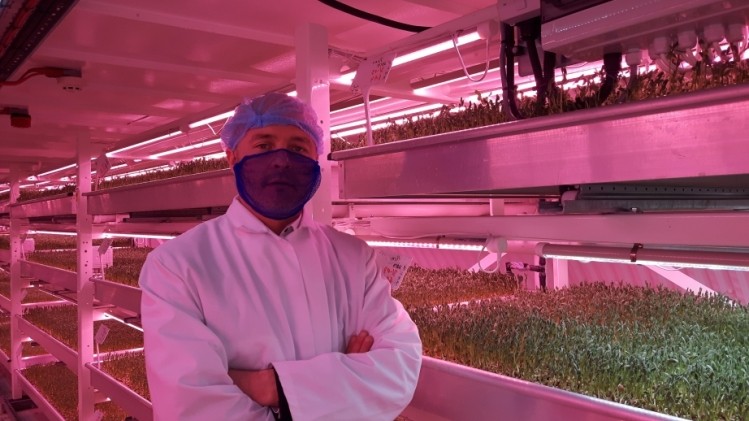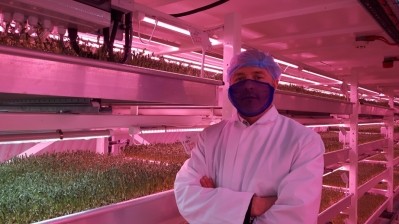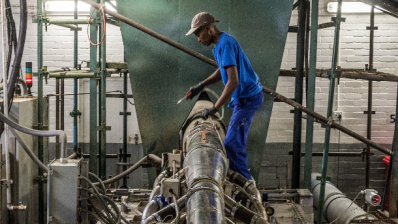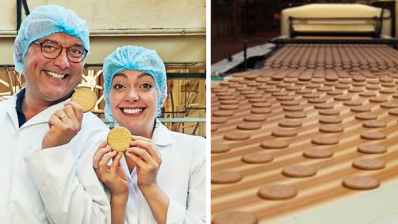Underground salad producer wins top award

Designed to celebrate cutting-edge innovation that could influence how food will be grown, distributed and sold in future, the Future Food Award celebrates new food models that could be replicated nationwide.
Located in Second World War air raid shelters below the streets of Clapham in south London, Growing Underground is a hydroponic farm dedicated to growing salad leaves and microgreens under LED lighting. After trialling 40 different types of plants, 10 are now being grown on a significant scale. Crops include peas, purple radish, coriander, fennel and garlic chives.
Plants are germinated underground on propagation mats before being raised under pink LED lights in the tunnels. The crops are grown in a closed ebb and flood system in liquid fortified with nitrogen, phosphate and potassium, without the need for pesticides.
Without the need for pesticides
So far this year, the business has signed a contract with Ocado and is about to launch a salad range with Marks & Spencer.
Co-founder of the business Steven Dring is careful to note that underground farms will never replace conventional agriculture. But they may make a significant contribution to cutting the length of food supply chains, in an age when global megacities are proliferating. In addition to curbing food miles, subterranean farming minimises the environmental impact of food production and avoids the need for pesticides, he says.
“We are careful to use the word ‘complementary’ rather than portray the business as a replacement for modern farming,” says Dring. “In the future, we envisage a lot of areas [underground] growing salad products and the land outside cities, previously used to growth them, being released to grow other crops.”
Rathlin Kelp and the Seed Co-operative
Food answers underground
“In the future, we envisage a lot of areas [underground] growing salad products and the land outside cities, previously used to growth them, being released to grow other crops.”
- Steven Dring
Shortlisted in the Future Food category were: Islander – Rathlin Kelp and the Seed Co-operative. Based on Raithlin Island, off Northern Ireland, Islander grows kelp to make a range of food products and ingredients. Tiny kelp plants are reared in the island nursery before planting on ropes in a marine conservation area off the coast.
Harvested kelp is blanched, it to bring out its vibrant colour and to remove salt, before being cut into noodles and tagliatelle. Minced and whole leaves are also used to make pesto.
The community-owned Seed Co-operative is dedicated to promoting open pollinated vegetable and crop seeds that everyone can afford, grow and save. Based in south Lincolnshire, the organisation works with growers and farmers nationwide to protect the genetic biodiversity and accessibility of seed stocks, in an age when multinational corporations increasingly dominate the global seeds industry.
Judges of the Future Food award were John Vincent, co-founder of the upmarket fast food chain Leon, and Food Manufacture’s group editor Mike Stones. Read more about the BBC Food and farming awards here.
Meanwhile, the Oscars of the food and drink manufacturing sector – the 17th Food Manufacture Excellence Awards – take place at the Park Lane Hilton, London on November 1.
BBC Food and Farming Awards, Future food category
Winner
- Growing Underground, Clapham, London
Finalists
- Islander – Rathlin Kelp, Rathlin Island, Northern Ireland
- Seed Co-operative, Spalding, Lincolnshire
















